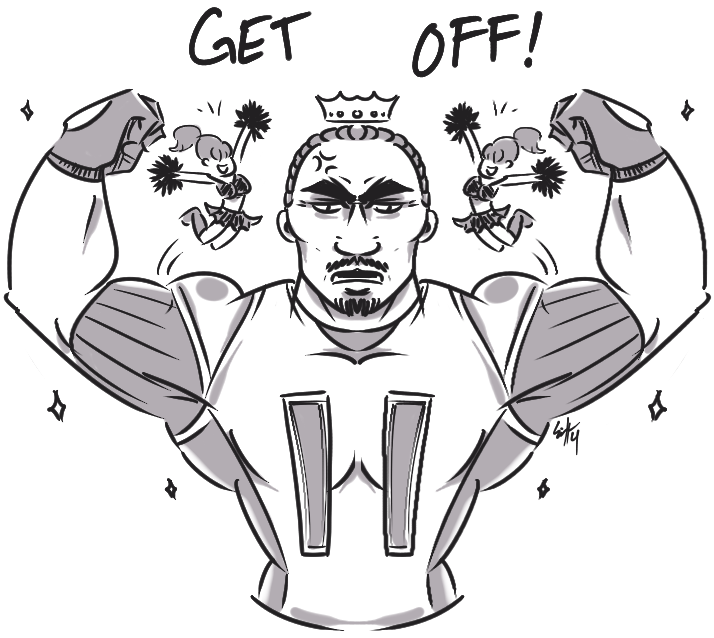
Erin Holloway, senior in English
A friend of mine, Lauren Frey, a junior in environmental sciences at NC State, once brought up the idea that we can gauge a society’s progress toward gender equality by looking at its dominant sports culture.
In the United States, ours is one of male superiority. Whether we look at the longstanding, yet fading pastime, baseball, or the emerging dominant obsession with football, we see an entire culture that restricts or accessorizes women.
Though more of a residual pastime than a dominant one, baseball has long been and remains a male-exclusive game. It wasn’t always this way. In fact, women were allowed in the game until 1931, when 17-year-old Jackie Mitchell consecutively struck out Babe Ruth and Lou Gehrig, the game’s biggest names.
Shortly thereafter, Major League Baseball banned women from signing contracts with the organization’s teams, ruling women “unfit” to play baseball (what happened to Mitchell remains something of a mystery for sports historians). From then on, women were left with softball, a less-respected variant of the same sport.
Nowadays, though, we in the U.S. don’t care so much about baseball as we do football. From a male-centric perspective, what’s not to love? A bunch of dudes get paid millions of dollars to work their bodies to the extreme, violently get a ball across a field and all the while have cute women cheer them on. Where else could one find such a perfect balance of money, power and chicks?
But there’s no female equivalent to football; there’s not even a pseudo-equivalent as there is for baseball. Instead, our dominant sport culture is one that emphasizes men’s brute strength and women’s role as cheering for them, quite literally, from the sidelines.
Other, less popular sports tend to follow this model—the only notable exception being soccer—but, since baseball and football have drawn the most historical acclaim, I’ll spare you my analyses of the rest.
One could argue there’s no harm in this sort of male-centric entertainment, but it would make for one god-awful argument—especially considering Ray Rice’s recent aggravated assault against his wife.
It’s probably important to note that I don’t find sports culture to be the cause of man-on-woman violence, aggression or dominance, but it certainly reflects and exacerbates cultural norms and attitudes.
Ray Rice, former running back for the Baltimore Ravens, was recorded using his strength to beat his fiancée, Janay Palmer, and dragging her unconscious body out of an elevator. At first, the NFL only suspended him for two games—a punishment many considered not enough.
The Ravens announced on Monday that they terminated Rice’s contract and that he would be suspended from the NFL indefinitely.
Legally speaking, Rice is now required to attend a pretrial counseling program. Granted he meets the terms of the program, according to USA Today, Rice will face no further legal punishment.
Janay Rice, now his wife, has publicly defended the former football player, insisting that the media—not her husband—has made her life a “horrible nightmare.” Many might take this to mean that because she forgives him, so should everyone else.
Ray Rice should never be forgiven.
As Lena Dunham said in a tweet, “Guess what? It’s still abuse whether she wants to press charges or not, whether she married him afterwards or not.”
Dunham, one of today’s most influential feminist voices, posted a series of thoughts to Twitter, asserting that the NFL does not actually care about domestic violence. She’s absolutely right.
That the NFL waited until a second video of Ray Rice actually beating his wife surfaced—despite knowing full well ahead of time what happened—indicates it only reacted because society would hold it accountable and, god forbid, it would likely lose money if it did not take some sort of measure.
Maybe the Rice incident can be written off as an isolated one; surely, his behavior is shameful and not at all indicative of football players. But this was, without a doubt, the result of intense physical training mixed with such rampant, subtle misogynistic attitudes ingrained in sports culture.
If my friend is right that sports reflects a society’s values—and she is—then this is a concern for everyone, not just those involved in sports. Ray Rice is but one example of domestic violence and of what happens when a society at large only values women as commodities to men.